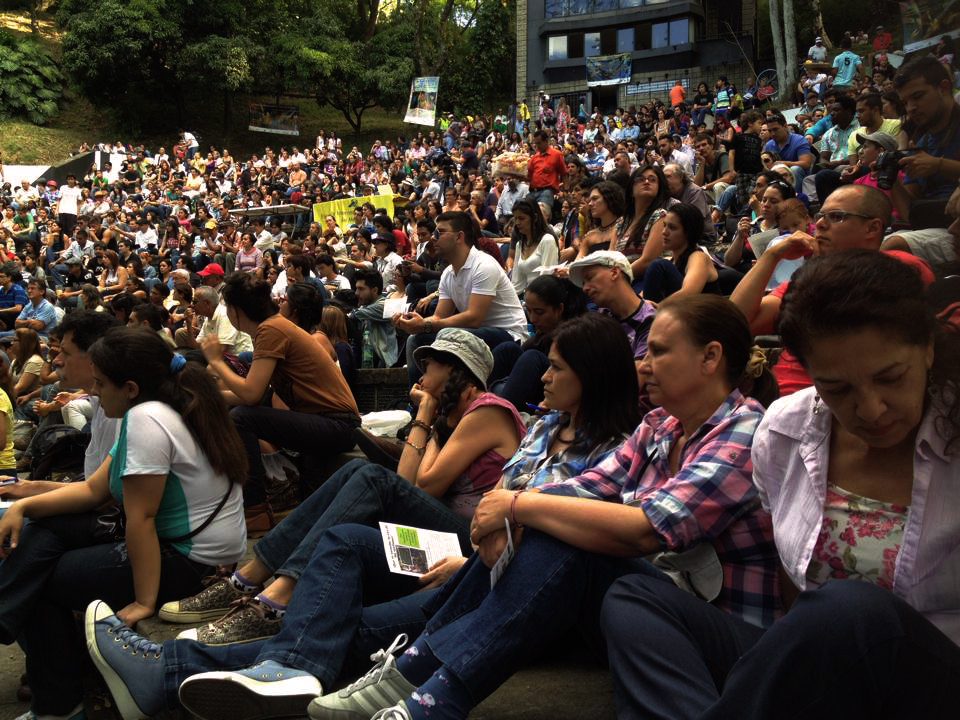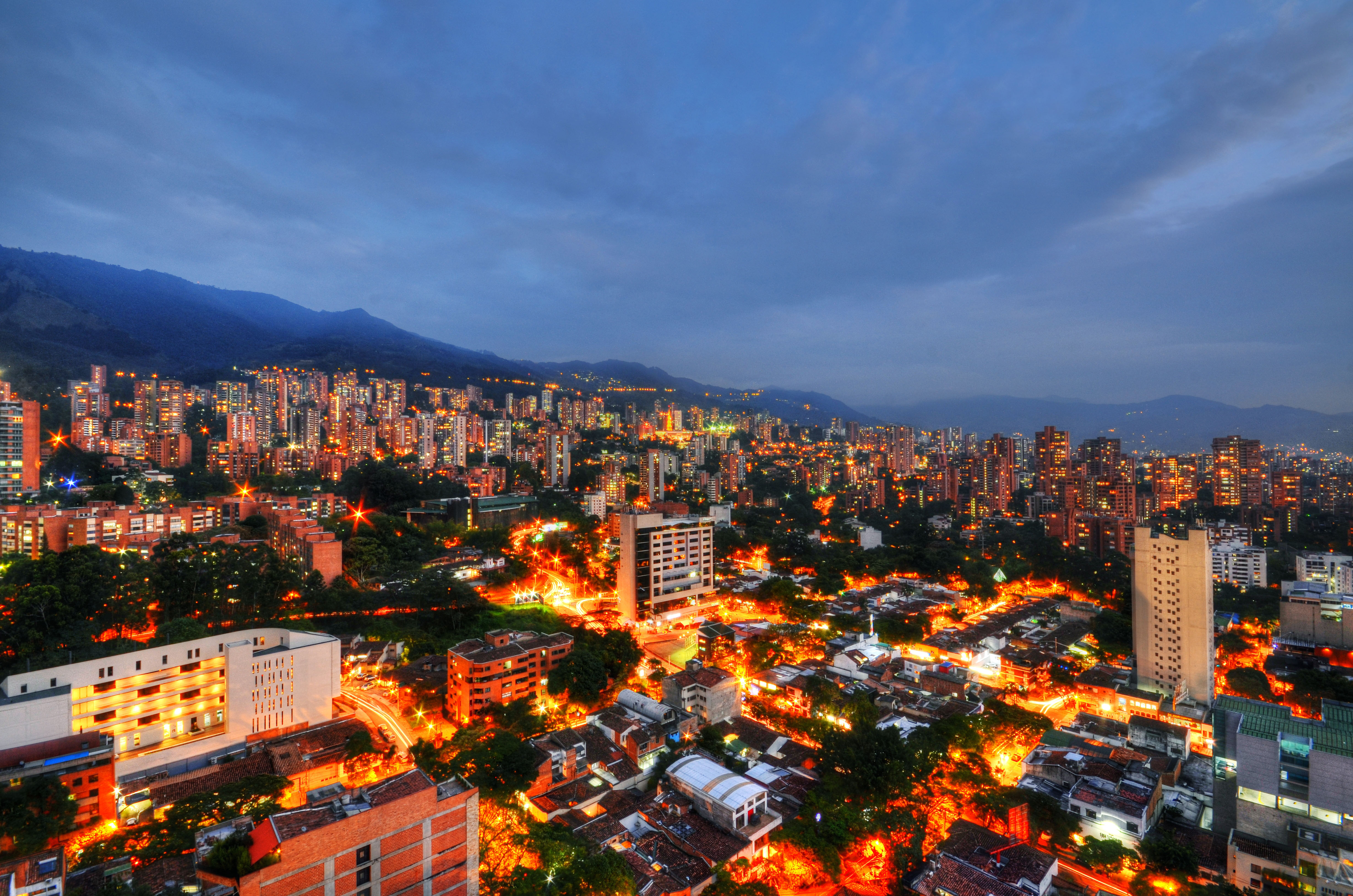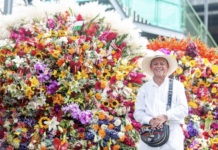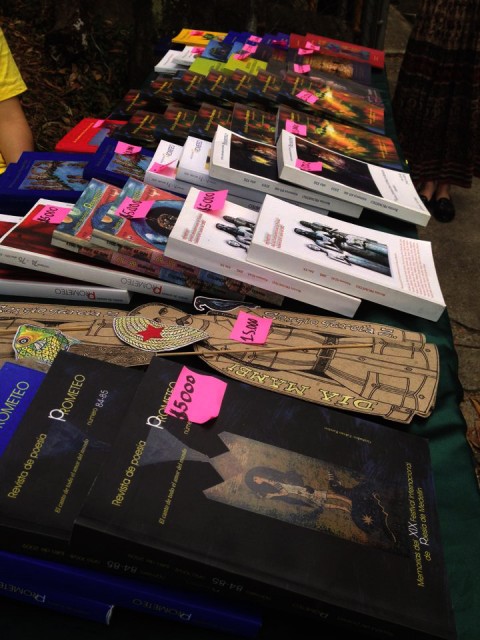
It started on Saturday, June 23 and lasted for one week. One week that Colombians and tourists spent honoring aboriginal people.
The 24th Medellín International Poetry Festival marked its presence with poetry readings of 65 renowned poets from 45 countries in the five continents.
My personal disappointment was that I didn’t get the chance to see and listen to Ion Deaconescu, a Romanian poet whose poetry I discovered not until this year, to my shame.
My office schedule didn’t actually get along with all the activities within the festival, but I will share with you the experience I had while participating at some readings.
Running from a noisy and busy work day to a chill reading evening is a quite relaxing affair, I give you that.
The History
The International Poetry Festival was the first international event to take place in Medellín at the beginning of the 90s.
Its origins are linked to the history of a nation that has spent many generations struggling through tangled sociopolitical conflicts from colonial times to nowadays.
In 1991, the International Poetry Festival of Medellín was created to stand against the horror of all the attacks on the human spirit that have taken place during tens of national civil wars.
As Medellín got the stigma of the world’s crime capital, the population was completely silenced and hidden.
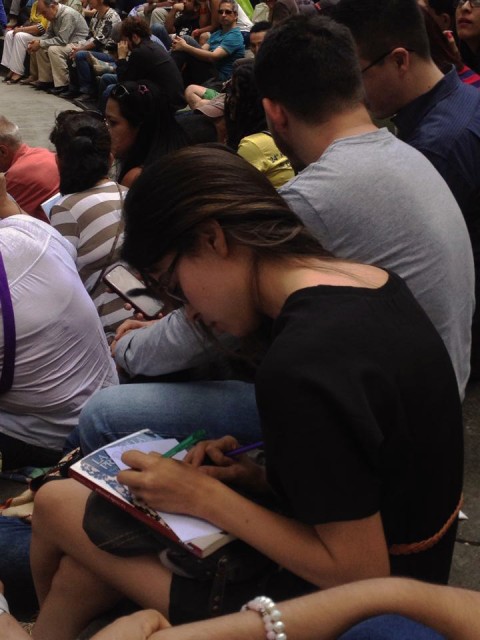
In a context of daily negative news, scenes of massacres on the streets, bomb attacks and death at almost every street corner, the poets gathered around the Prometeo Latin American poetry magazine and proposed a bright and coherent solution: the creation of a poetry festival to reaffirm and celebrate life.
This would come up as an answer to a nightmarish atmosphere surrounding Colombians for years, so it was thought as a way of resistance and creation in the face of a chaotic culture.
Thus an enthusiastic and engaged audience involved in the cultural activities developed within the festival for the last two decades, leading to the committed and constructive community that gathered around the festival and transformed it to what it is today.
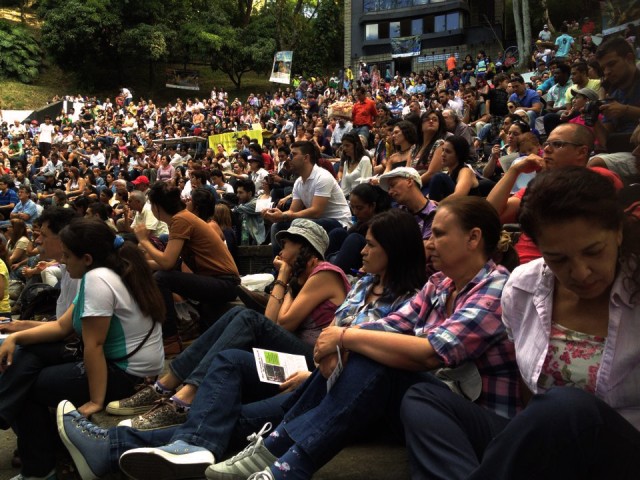
The 24th Edition
The opening of the festival filled up the Carlos Vieco theatre in Cerro Nutibara with enthusiastic poetry lovers who came to listen to words that express peace, love, life and the beauty of altogether.
The sensation of the event was Gcina Elsie Mhlophe, a well-known South African freedom fighter, activist, actor, storyteller, poet, playwright, director and author, as Wikipedia states.
The poems she read, the songs she sang and her voice filled us all with the hope that there will be peace in the world and that each of us can do something about it.
As I scanned the view around me I couldn’t help but notice a banner saying ‘Liberar a Palestina’ (Free Palestine) held by young people in the crowd to raise awareness on international war situations.
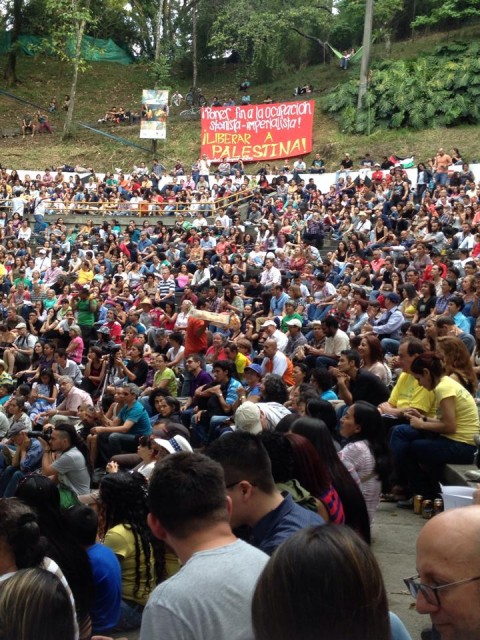
Among the guest poets invited there were several native poets from various ethnic groups worldwide.
Their contributions and ancestral knowledge paid homage to the world’s native people, who have resisted the aggression of a centuries-long destruction.
The poems were read in native language, English and Spanish for everybody to understand the message and purpose.
As a Spanish learner, quickly heading to a proficiency level, I must admit poetry in Spanish has certain vibe that Romanian, English and French poetry (that I learned about so far) doesn’t bring to the table.
I guess it’s about the charm each language has, but nevertheless art is a universal language, isn’t it?
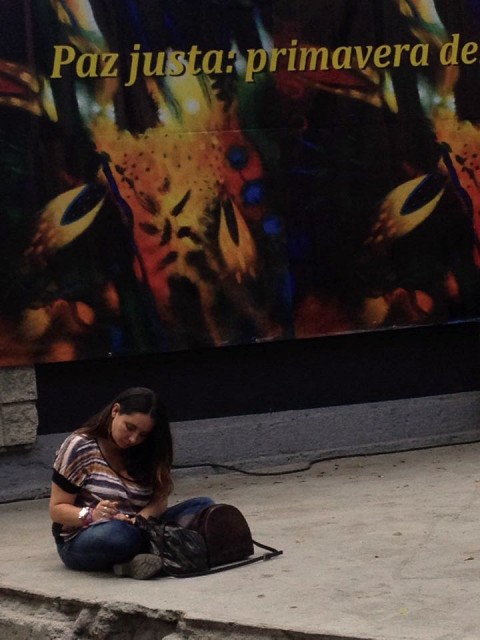
The festival was also yet another opportunity to walk around the city and discover new buildings and key places in Medellín as the activities took place in various locations – libraries, shopping centers, theaters, parks, development centers, schools, hotels.
This was possible with the strong support the festival had from local entities, proving its impact on the community.
The events were organized in different neighborhoods in an attempt to connect people with notorious areas of the city and to bring the culture to places where nobody thought could be possible.
The festival had a rich complementary schedule, including other areas of the arts – concerts, monologues, theatrical plays, sketches and performances.
All of these activities were meant to revolve around the poetic experience thus to consolidate the general purpose of the festival, focused on the efforts towards the preservation of Earth and the achievement of peace in Colombia.
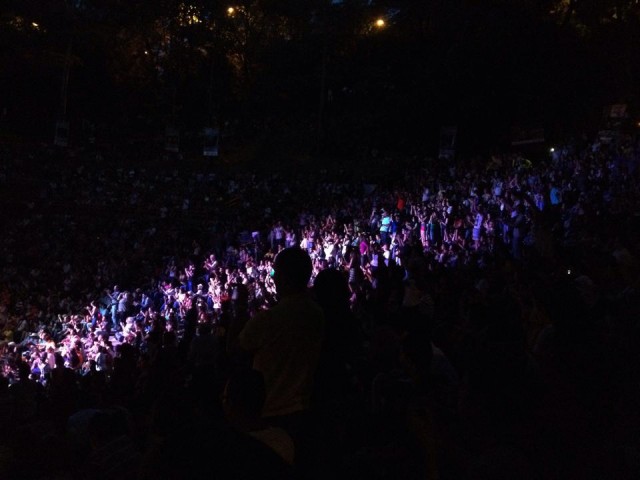
Final Thoughts
The closing event didn’t end with a concert as the opening one did – Andrea Echeverri played some really powerful songs, highlighting this year’s theme of the festival right from the first day – but it made us leave home with a bunch of serious questions, mixed feelings and the thought that art and creation will always take us forwards no matter what.
The event takes place each year in July.
If you’re not around at that time of the year, maybe you can see some of the activities online, this year they had a drone to live stream the closing event.
But if you do happen to be around take the time to attend at least one event within the festival. Even if you’re not a poetry lover, you’ll love the atmosphere and the inner peace it brings, as noisy as the crowd would be.

